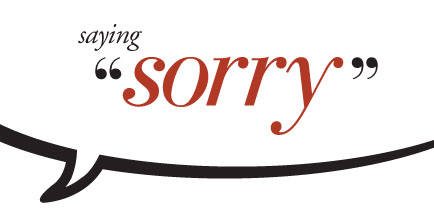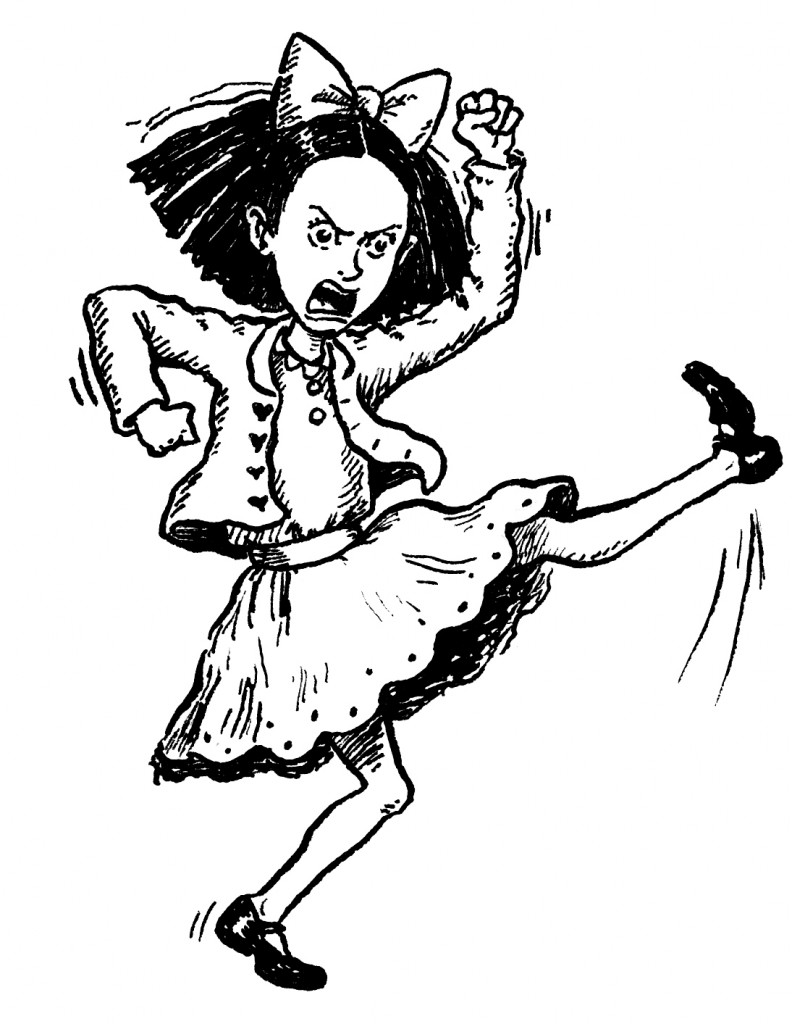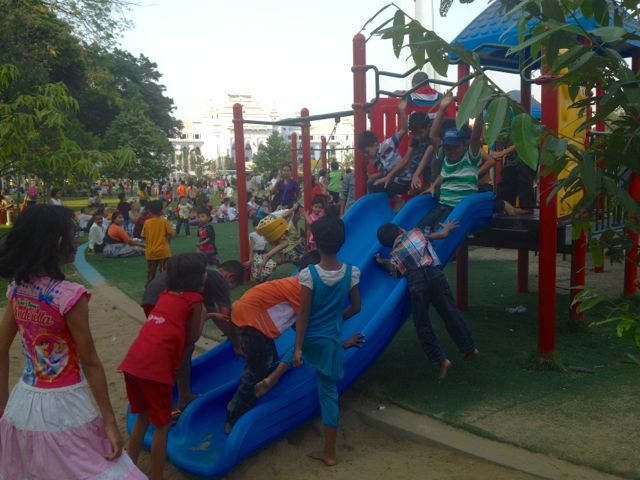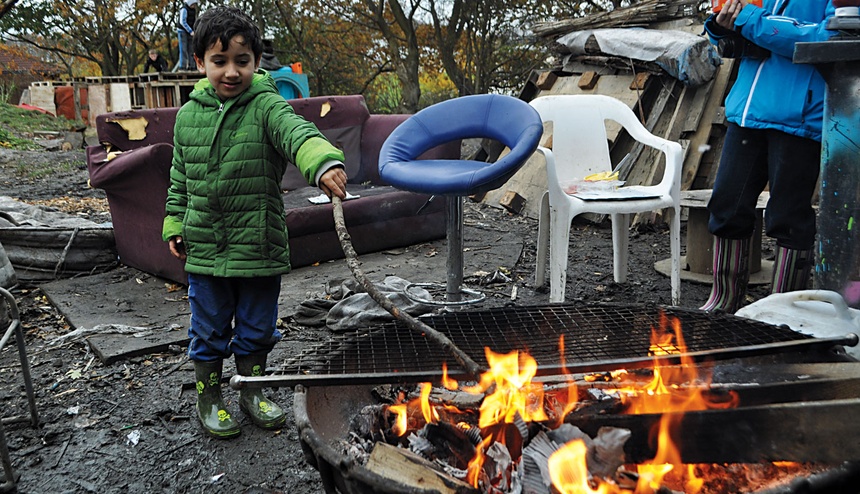A World of Books and Children
Search and enjoy 8 years of posts chock-filled with ideas from It’s OK Not to Share and beyond.
Kids love the word "sorry." Just say "sorry" after you push someone and the adults are appeased. It's magic. One short word and you're off the hook.
We expect kids to say "sorry" because we want kids to patch things up, to care about others, to develop empathy and awareness and to feel remorseful. The trouble is, young kids are rarely sorry. Saying "sorry" on command doesn't make the word come true.
You can't force remorse.
Remorse is part of moral development, and needs to come from inside the child. You can help develop those feelings by focusing on what a child can do: take action and make a meaningful guarantee.
Take Action - Kids are great at taking action. Involve them in making things better. "Go get an ice pack!" "Bring the tissue box!" "Find Ava's favorite teddy!" Give the child an action they can do. Taking action also brings the child back to the scene where they can witness how sad or hurt the other child is. This helps develop awareness of others. Becoming a helper also helps the child feel better about what they did, especially important if it was an accident.
Make a Guarantee - It's much more meaningful for a child to say "I won't push you again" or "I won't knock your tower over." These are powerful words for kids on both sides of the problem. The aggrieved child feels safe (I won't get pushed again/ my toys are safe). That's a lot more comforting than hearing an insincere "sorry." Sorry doesn't carry a guarantee.
For the child who makes the guarantee, those words also carry tremendous power. It's amazing to see, but kids who make a verbal guarantee tend to live up to their behavior statement. Of course, there may be times it doesn't work. If a child makes a guarantee but still can't control his impulses, acknowledge the challenge and move him away. "It's too hard for you right now. Your body can't stop pushing. I will help you stop. I'm moving you away from Ava."
A guarantee - "I won't push you again" - is more meaningful than "sorry."
Guarantees and helper actions do more to truly resolve the problem, foster awareness of others, and yes, develop empathy and remorse. As for the word "sorry," don't worry. Saying "sorry" is a cultural norm. Kids will pick it up if we model apologies in every day life.
What have you found that helps kids be truly sorry? Do you ask kids to say "sorry" because adults around you expect it? Have you ever been surprised by kids' kindness?
If you know young children, you know about explosive anger. There's lots to be frustrated about when you're little, and this pent up emotional energy often breaks out physically. Kids hit, kick, cry and yell.
Hitting per se is not bad. It's the target. "Let Kids Hit and Kick" is the title of a chapter in It's OK Not to Share. It gives you tips on how to accept the wild emotions and energy while setting firm limits on behavior. "You're mad, but I can't let you hit your brother. If you need to hit, hit the pillow. It can't get hurt."
As parents, we rush to protect other living things - brothers, sisters, neighbor kids, the cat, the houseplant - from our child's rage. But what about our own bodies? It's quite simple:
Mothers aren't for hitting. Fathers aren't for hitting.
This needs to be an absolutely firm line. People aren't for hitting. And that includes mothers.
I emphasize mothers here, rather than fathers, because it seems moms have a tendency to allow children to hit them. Countless times I've seen angry, frustrated young children attempt to hit their mothers. And their mothers let them.
We cannot allow a child to think it's OK to hit a parent. This crosses a dangerous relationship line. People aren't for hitting and parents are people. Why any exceptions? If kids are allowed to hit their mothers growing up, they come to believe that hitting some people is OK. A mother now. A future girlfriend or wife or child later.
What a horrible lesson to convey: don't hit people, but family members are the exception.
Besides, kids want to be stopped. They're angry, but they don't want to be allowed to do just anything. They're out of control and that's scary. It's especially frightening for a child to strike a parent. They know it's wrong. Crossing the line typically terrifies them more than their own anger. They don't know if they'll lose their parent's love.
Setting boundaries is a big part of what life's all about.
If you're a parent who lets yourself be hit by a child, take action to stop. Set boundaries for your body. Move fast, be firm, pin your child's flailing arms if you have to. Say over and over to both yourself and your child: "I won't let you hit me. People are not for hitting."
You owe it to yourself, to your child and to the world.
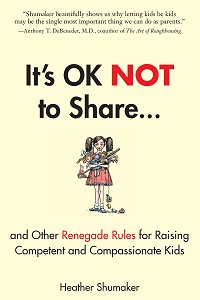 For more tips about how to set effective boundaries on these tricky issues and how to deal with a child who tries to hit a lot, see chapters on emotions, limit setting and hitting and kicking in It's OK Not to Share: And Other Renegade Rules for Raising Competent and Compassionate Kids.
For more tips about how to set effective boundaries on these tricky issues and how to deal with a child who tries to hit a lot, see chapters on emotions, limit setting and hitting and kicking in It's OK Not to Share: And Other Renegade Rules for Raising Competent and Compassionate Kids.
What about you? Do you remember what it felt like to try to hit your mother or father? Have you ever let your child hit you? How does it feel when you see a mother or father letting themselves be hit in public?
If you've ever been on a U.S. playground, you know one of the biggest controversies is this: should kids be allowed to go up the slide? The fact the question exists at all shows there's a split between what's good for kids and what's good for parents. In most cases it's not about safety, it's about parental pressure -- judging, social pressure exerted from one parent (typically a stranger) to another.
Isn't that odd, that in the realm of children's play, it matters more what the other adults think?
I know how harsh the bad looks can be. I'm one of those parents who lets the kids climb up the slide. Why? Because it's healthy play, full of adventure, risk, and sometimes peer negotiation. It also does no harm. It follows the golden renegade rule:
It's OK if it's not hurting people or property.
Kids going up a slide giggle. They feel powerful. They gain balance, spatial awareness, and yes, social awareness. If a conflict comes up -- between the kids not the parents -- kids typically resolve it as part of the game's flow.
The typical American playground is static. The swings are fun, and going up and down the slide is fun, but there's nothing to move or create or build. Scattered around the world are adventure playgrounds, including this one recently featured in The Atlantic, which gives kids lots to play with -- including fire.
So if you don't have a fire-burning, saw-cutting, water-splashing, junk-filled playground near your house, what do you do? Some ideas:
- Relax the parents around you. Say something out loud that other adults can hear. "It's OK with me if they go up." or "Seems as if they're doing fine."
- Address the concern. "Looks as if you're worried about something. What's your concern?" Chances are the kids themselves can problem-solve and fix it.
- Point out observations to your kids. "It's crowded today. Looks as if the slide's only for going down right now."
- Go somewhere else. Modern playgrounds are not particularly interesting places to play. You can't move the pieces. There are too many judging eyes and safety rules. Skip the official 'playground' and find some water. Throw stones. Wade. Go to the woods and whack sticks or build a tree fort. Balance on logs. Pick up logs and heave them about. Maybe you'll even find a salamander.
What do you think? Have you ever been caught in the slide dilemma? Is it more about you and other adults, or is it about children's play? Know any great playgrounds?

